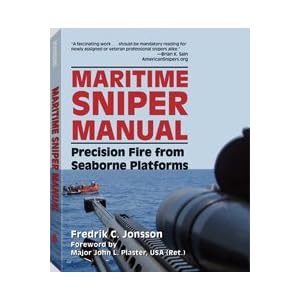But executives with international mining firms said in interviews that while they believed that Afghanistan’s mineral deposits held great potential, their businesses were not planning to move into the country until the war was over and the country more stable.
“There are huge deposits there,” said David Beatty, chief executive of Rio-Novo Gold, a mining company based in Toronto. “But as chief executive, would I send a team to Kandahar? And then call a guy’s wife after he gets shot? No.”
*****
I was reading an excellent book the other day called “The End of the Free Market: Who Wins the War Between States and Corporations” by Ian Bremmer, and it was quite the read. Basically, if you track the actions of countries like China in places like Iraq, Africa or Afghanistan, you start to get the idea that something is going on here. That state owned companies have the advantage over private industry in these war ravaged and resource rich countries. That reality is what worries me, and in the larger battle over resources in this world, we need to make some adjustments.
The problem is that private industry just does not want to take the risk of entering these places, because there is just too much liability. Besides, a private company does not have the full weight and support of a country behind it, but a Chinese owned company does. That is a huge advantage.
I have talked about clashes before between free markets and state capitalism in the past, and a prime example was the battle between China and Google. Another example was between Chinese companies and all of the privately owned oil companies going after contracts in Iraq. In both examples, China is able to win contracts or do whatever they want to bend the markets to their advantage, all because they have the full strength of a country behind such endeavors. They can absorb risk, do whatever they want to their people, pay whatever they want, etc., and this hybrid machine called state capitalism is definitely a factor to deal with in the market place.
So how do companies compete against such a thing? That is a question that I am not qualified to answer. The book provides some answers, and I highly suggest folks to check it out. All I can provide in this conversation are some ideas to alleviate concerns about risk in these countries. Private security is what private industry (along with free market supporting governments like the US) uses to protect their investments, and that is what I specialize in. In this war between state capitalism and free markets, security contractors are right there on the front lines.
One thing that can happen to help in our fight against state capitalism, is for capitalist countries to empower private security to do their job. If you make it impossible or difficult for us to be effective, then of course the risk will go up for those investors. This is a fine line to walk, but it is necessary to address if you want to benefit from that free markets that capitalism needs in order to flourish.
Now with Afghanistan, we have a deal where Chinese companies are aggressively pursuing these mineral claims and the rest of the world wants nothing to do with the things. They fear the risk due to the war and politics of the region, and rightly so. With that said, all and effort must be made by the coalition to make that market more attractive to private industry and to allow private industry to do what it needs to do in order to alleviate that risk. Because right now, we are losing that war between state capitalism and free markets in the places where the West has done all of the heavy lifting and dying. –Matt
——————————————————————-
Afghanistan Moves Quickly to Tap Newfound Mineral Reserves
By ALISSA J. RUBIN and MUJIB MASHAL
June 17, 2010
KABUL, Afghanistan — The Ministry of Mines announced Thursday that it would take the first steps toward opening the country’s reserves to international investors at a meeting next week in London even as Afghans expressed a mixture of hope and doubt about the government’s commitment to develop the country’s newly documented mineral wealth.
The focus of the meeting will be the Hajigak area of Bamian Province, which has major iron ore deposits, the Mines Minister, Wahidullah Shahrani, said at a news conference here.
It was Mr. Shahrani’s first public appearance since news that the country had at least $1 trillion in untapped mineral resources became public after an article appeared Monday in The New York Times that detailed findings of the Pentagon and United States Geological Survey. Afghan officials described the $1 trillion estimate conservative and said their estimates suggested the reserves could be worth as much as $3 trillion.
“This good news has the potential of adding a lot of value to the economy of Afghanistan and it will serve the development of Afghanistan,” Mr. Shahrani said.
The previously unknown deposits include huge veins of iron, copper, cobalt, gold and critical industrial metals like lithium. With so many minerals that are essential to modern industry, Afghanistan could be transformed into one of the most important mining centers in the world, according to American officials.
Two hundred mining investors from around the world have been invited to next week’s meeting in London where they will offer suggestions for how to develop the iron ore deposits at Hajigak, said Craig Andrews, the principal mining specialist for Afghanistan for the World Bank.
(more…)
![]()
